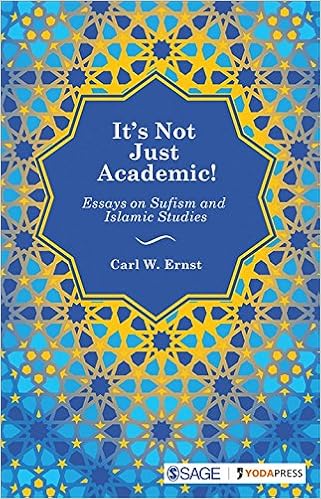by Carl W Ernst
This collection of articles by Carl W Ernst summarizes over 30 years of research, recovering and illuminating remarkable examples of Islamic culture that have been largely overlooked, if not forgotten. It opens with reflections on teaching Islam, focusing on major themes such as Sufism, the Qur’an, the Prophet Muhammad, and Arabic literature. The importance of public scholarship and the questionable opposition between Islam and the West are also addressed. The articles that follow explore multiple facets of Sufism, the ethical and spiritual tradition that has flourished in Muslim societies for over a thousand years. The cumulative effect is to move away from static Orientalist depictions of Sufism and Islam through a series of vivid and creative case studies.
Carl W. Ernst is a specialist in Islamic studies, with a focus on West and South Asia. His published research, based on the study of Arabic, Persian, and Urdu, has been mainly devoted to the study of three areas: general and critical issues of Islamic studies, premodern and contemporary Sufism, and Indo-Muslim culture. He has received research fellowships from the Fulbright program, the National Endowment for the Humanities, and the John Simon Guggenheim Foundation, and he has been elected a Fellow of the American Academy of Arts and Sciences. His publications, which have received several international awards, include Rethinking Islamic Studies: From Orientalism to Cosmopolitanism (co-edited with Richard Martin, 2010); Following Muhammad: Rethinking Islam in the Contemporary World (2003); and Teachings of Sufism (1999).
He is the William R. Kenan, Jr., Distinguished Professor (2005- ) and Co-Director of the Carolina Center for the Study of the Middle East and Muslim Civilizations. He and Bruce Lawrence are co-editors of the Islamic Civilization and Muslim Networks Series at the University of North Carolina Press.

No comments:
Post a Comment